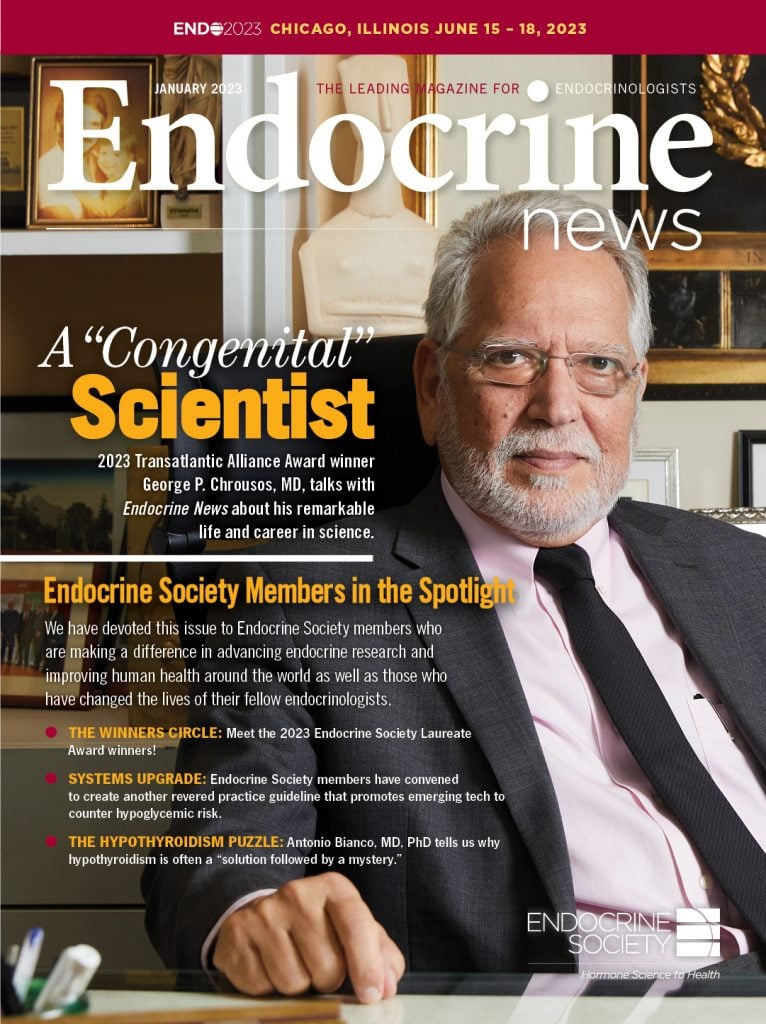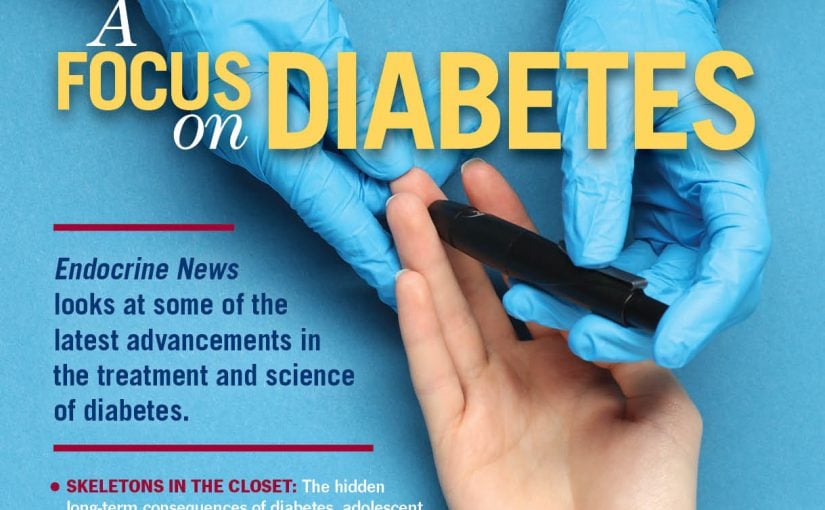 As one of the world’s leading experts in circadian biology and endocrinology, Joseph Bass, MD, PhD, was an obvious choice for the Endocrine Society’s 2023 Roy O. Greep Outstanding Research Laureate Award. He talks to Endocrine News about the award, his mentors along the way, and how he became so enamored with the science behind...
As one of the world’s leading experts in circadian biology and endocrinology, Joseph Bass, MD, PhD, was an obvious choice for the Endocrine Society’s 2023 Roy O. Greep Outstanding Research Laureate Award. He talks to Endocrine News about the award, his mentors along the way, and how he became so enamored with the science behind...Fascinating [Circadian] Rhythm: Q&A with Joseph Bass, MD, PhD
 As one of the world’s leading experts in circadian biology and endocrinology, Joseph Bass, MD, PhD, was an obvious choice for the Endocrine Society’s 2023 Roy O. Greep Outstanding Research Laureate Award. He talks to Endocrine News about the award, his mentors along the way, and how he became so enamored with the science behind...
As one of the world’s leading experts in circadian biology and endocrinology, Joseph Bass, MD, PhD, was an obvious choice for the Endocrine Society’s 2023 Roy O. Greep Outstanding Research Laureate Award. He talks to Endocrine News about the award, his mentors along the way, and how he became so enamored with the science behind...
 Maria T. Balhara discusses her ENDO 2023 sessions on food’s impact on human health A three-session symposium on our everchanging food environment, “Impact of the Changes in Food Environment in the Development of Obesity,” looks at endocrine-disrupting chemicals, climate change, and processing methods and how these factors impact endocrine health, specifically obesity. Endocrine News talks...
Maria T. Balhara discusses her ENDO 2023 sessions on food’s impact on human health A three-session symposium on our everchanging food environment, “Impact of the Changes in Food Environment in the Development of Obesity,” looks at endocrine-disrupting chemicals, climate change, and processing methods and how these factors impact endocrine health, specifically obesity. Endocrine News talks... The Endocrine Society’s 2023 Laureate Richard E. Weitzman Outstanding Early Career Investigator Award recipient, Rana K. Gupta, PhD, talks to Endocrine News about his research, his parents’ influence, his advice to young investigators, and why his “happy place” is at the bench. The research lab became his “happy place” as a young undergraduate. Fast forward...
The Endocrine Society’s 2023 Laureate Richard E. Weitzman Outstanding Early Career Investigator Award recipient, Rana K. Gupta, PhD, talks to Endocrine News about his research, his parents’ influence, his advice to young investigators, and why his “happy place” is at the bench. The research lab became his “happy place” as a young undergraduate. Fast forward... Honored by both the Endocrine Society and the European Society of Endocrinology with the 2023 Transatlantic Alliance Award, George Chrousos, MD, ScD, has made significant contributions to endocrine research on both sides of the Atlantic! Endocrine News speaks with Chrousos about what this award means to him, conducting pioneering research on two different continents, the...
Honored by both the Endocrine Society and the European Society of Endocrinology with the 2023 Transatlantic Alliance Award, George Chrousos, MD, ScD, has made significant contributions to endocrine research on both sides of the Atlantic! Endocrine News speaks with Chrousos about what this award means to him, conducting pioneering research on two different continents, the... Two months after his new book, Rethinking Hypothyroidism, hit the shelves, Antonio Bianco, MD, PhD, talks to Endocrine News about, well, rethinking hypothyroidism. From his research of thyroid metabolism and deiodinases to why researchers and clinicians have often been so mystified by hypothyroidism for centuries, Bianco discusses why treating hypothyroidism is a “solution followed by...
Two months after his new book, Rethinking Hypothyroidism, hit the shelves, Antonio Bianco, MD, PhD, talks to Endocrine News about, well, rethinking hypothyroidism. From his research of thyroid metabolism and deiodinases to why researchers and clinicians have often been so mystified by hypothyroidism for centuries, Bianco discusses why treating hypothyroidism is a “solution followed by...